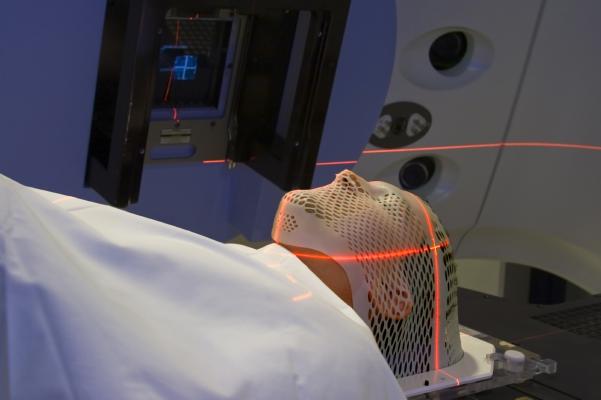
October 19, 2015 — Immunotherapy combined with palliative radiation therapy (RT) for a subset of patients with metastatic melanoma reduces the growth and spread of the cancer, according to research presented at the American Society for Radiation Oncology’s (ASTRO’s) 57th annual meeting.
Although melanoma is not the most common type of skin cancer, it is the most serious type. Stage IV melanoma indicates the cancer has metastasized and spread through lymph nodes to distant sites in the body and/or to the body's organs. The liver, lungs, bones and brain are areas most frequently affected by these metastatic lesions. Immunotherapy—the use of medicines to stimulate a patient’s own immune system to recognize and destroy cancer cells more effectively—can be combined with other cancer therapies to aid in the treatment of stage IV melanoma. Ipilimumab is an immunotherapy approved for use in melanoma patients.
This phase II clinical trial is one of the first prospective clinical trials to report results from the treatment of metastatic melanoma with the combination of RT and systemic immunotherapy. In this study, 20 patients with stage IV melanoma were treated with palliative RT and intravenous ipilimumab (3mg/kg) every three weeks, for a total of four treatment cycles. RT was initiated to one or two sites of metastatic melanoma within five days of the initial immunotherapy treatment. All patients had at least one nonirradiated (untreated) site of metastasis that could be used for assessment of response to therapy.
Patients had blood drawn during and after treatment to determine if there was evidence of an immune response developing in reponse to the therapy. Baseline tumor imaging studies were completed prior to treatment, and follow-up assessments were completed two to four weeks following the fourth dose of immunotherapy, and every three months until disease progression was detected. Response Evaluation Criteria in Solid Tumors (RECIST) and Immune Response Criteria (IRC) guidelines were used to score responses based on tumor measurements.
At a median follow-up of 38 weeks, 11 patients (55 percent) had an initial response to therapy—including complete and partial responses, as well as stable disease (SD), meaning the cancer had not grown or spread. A complete response (CR) means all signs of the cancer have disappeared. A partial response (PR) indicates the cancer responded to treatment but did not disappear. Of the 11 patients who responded to the immunotherapy, one patient (9.1 percent) had an ongoing systemic CR to the combination therapy at a median follow-up of 39 weeks. Three patients had a PR to therapy for a median of 38 weeks (range 26-52 weeks), and five patients had SD as best response for a median of 36 weeks (range 26-76 weeks). The nine other patients had progressive disease as defined by RECIST on the first treatment scan.
Additionally, an analysis of blood markers in a subset of patients identified immune markers that appeared to correlate with responses. This initial data suggests that immune response markers in the peripheral blood may have promise to help to distinguish responders from nonresponders in the future, for purposes of facilitating better patient selection for treatment and early detection of potentially meaningful immune responses to therapy.
“We were impressed that half of the patients appeared to have benefited from this combination therapy, many with durable responses to therapy,” said Susan Hiniker, M.D., lead author of the study and instructor in the Department of Radiation Oncology at Stanford University School of Medicine. “Current data shows that three patients have had an ongoing complete response to therapy, which suggests that the combination of immunotherapy plus radiation can be extremely effective in a subset of patients. Our results suggest that local radiation therapy can be safely and effectively combined as a component of in situ tumor vaccine strategies with the new potent class of immunotherapy drugs that are revolutionizing the treatment of metastatic melanoma and other difficult-to-treat cancers. These data also suggest that radiation may potentiate the effects of this new class of immune-targeting medication and support the design of larger trials to further investigate potential synergy between radiotherapy and immunotherapy in the treatment of cancer.”
For more information: www.astro.org


 February 04, 2026
February 04, 2026 









